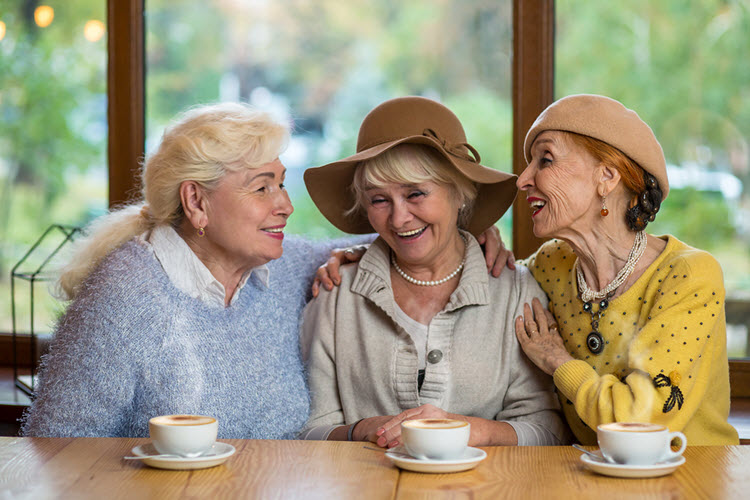Is a care partner different from a caregiver? I think they can be.
Recently, I was chatting with a friend about caregiving. She is in remission from cancer and I wanted to understand more about what she experienced as a person receiving the care. When she used the term ‘care partner’, I asked her what that meant to her. “Care partner is the term my medical team used to describe who I wanted included in medical discussions. In my case, my husband was my care partner.”
When someone gets a life changing diagnosis, they and their caregiver need support, care partners if you will. Given her experience as a two-time cancer survivor, I asked Sally* what she would like people to know from her perspective as a person receiving care and what she appreciated in a care partner.
Accepting help comes in stages.
“I am independent, so I had expectations for myself that made it difficult for me to ask for help. I was all about ‘I got this.’ The first time I realized I was going to need someone to take care of me was in going up and down stairs during chemo. It was exhausting. My husband and I rearranged a lot of our life during treatments by moving my world into a single room.”
“My husband was my primary caregiver, but others need to help as well. One of our children researched treatments and recipes to offset what chemo did to my sense of taste. It was a way for my child to support me and also take charge of something which I believed helped them.”
“The truth is, I found it easier to ask for help with physical things. It was two months into treatment before I realized I needed emotional support from people like myself. That’s when I called Cancer Hope Network. They matched me with a woman who was 5 years out of stage 3 with the same cancer diagnosis and chemo treatments. Talking to her gave me hope because statistics stink for my type of cancer in the late stages.”
“It took me a while to be open about what was going on with people outside my family. Not only do you have to be ready to share, but people in the relationship have to be ready to hear your story.“
Communication is such an important part of an illness.
“Even if the communication is not good, it needs to happen. You don’t know what your children or spouse or friend is really thinking, so you have to talk about it in order to be care partners.”
“My husband was my rock, but there were times it was hard for me. While in treatment, I was in the kitchen having dinner with him and I got up to get myself something. Immediately he said, “Let me get it for you.” And I said, ‘I am not an invalid, I can still function’, then I went upstairs. It wasn’t long before I came down and apologized and thanked him for all he is doing for me and making my life manageable, but I needed to feel normal.”
“It was important to me that my diagnosis did not stop my children from living their lives. When one asked my opinion about switching schools to be closer to home, I made sure they were doing it for themselves. I did not want them to change their life for me, but for them to feel comfortable. I promised I would let them know how it really was for me.”
Honesty works both ways.
“It was hard at first because I didn’t look like myself. It wasn’t so much the hair, but I did not have eyebrows or eyelashes. The first time I wore a wig in front of one of my children, the response was ‘Oh my God, get that thing off your head and put a scarf on.’ That gave me permission to be OK, to just be myself, to be who I was in that moment and not be back to normal yet.”
Support from outside the family.
“Friends would occasionally stop by with food. Others would stop by to visit. If you do stop by to chat, let the person with the disease talk about it if they want to. Most of the time I wanted to talk about normal stuff, not me and what I was going through. It’s OK to have a regular conversation. That is what I needed to feel normal.”
Final thoughts on being a good care partner.
“I would get a lot of “Oh my God, I don’t think I could go through it and do what you do.” But you do what you have to do. Even worse were comments like “Oh, poor Sally” which made me so angry. I worked too hard to stay alive to put up with people who only saw me in this way.”
“One thing I could not tolerate were people who were struggling with something in their life and their view was “Oh, I wish I would get sick and die.” That made me so upset. I had worked so hard to stay alive and I didn’t want to hear talk like that. In order to protect myself, I set a boundary about spending any time with them. You try not to let the attitude of family or friends affect you, but it does.”
*name has been changed
Disclaimer: The material in this blog is for educational purposes only. It is not intended to replace, nor does it replace, consulting with a physician, lawyer, accountant, financial planner or other qualified professional.
Deb is available as a caregiver consultant. She will answer the question: “Where do I start?” and find the resources to alleviate your stress. If you would like to invest a half hour to learn how she can help you, please contact her at: deb@advocateformomanddad.com

